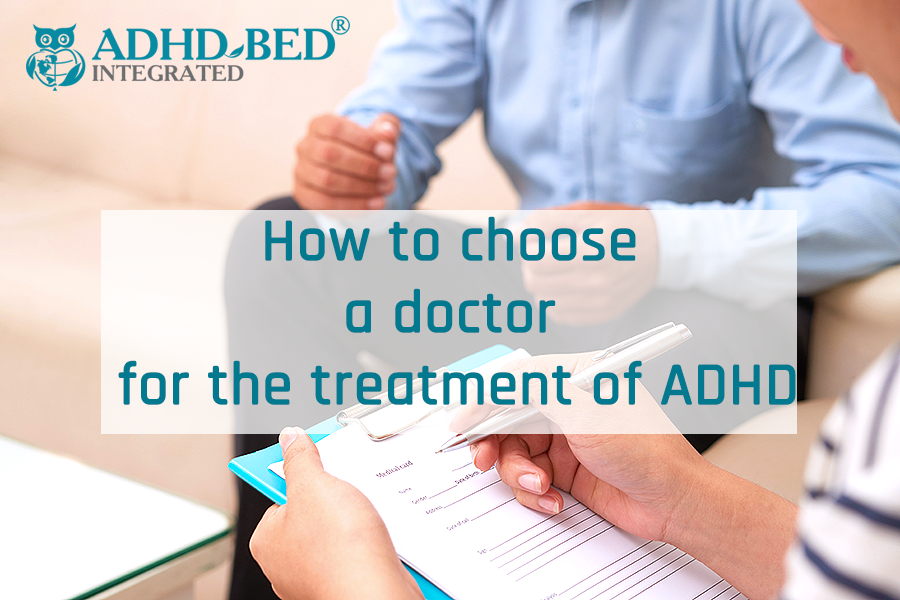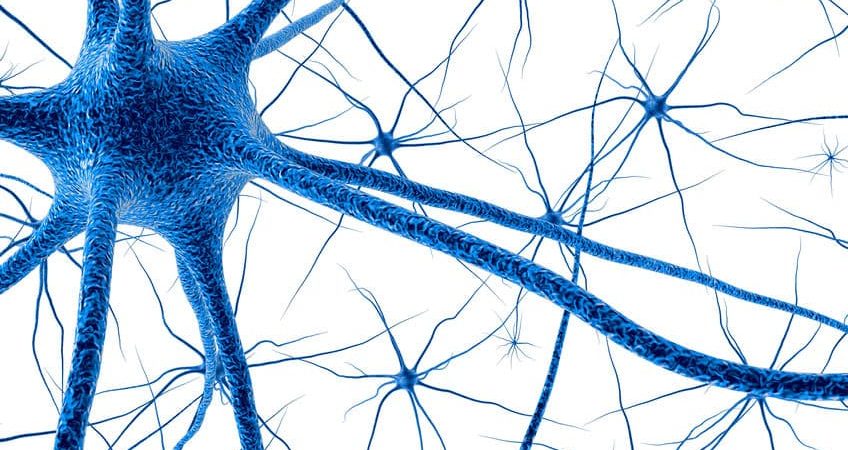Table of Contents
Introduction
Attention Deficit Hyperactivity Disorder (ADHD) is a neurodevelopmental disorder characterised by symptoms of inattention, hyperactivity and impulsivity. Being a neurodevelopmental disorder, symptoms of ADHD typically begin in childhood and can manifest into adulthood.
People with ADHD commonly have trouble with concentrating on a task and/or completing it, inhibiting impulsive and hyperactive behaviour and regulating emotions. If ADHD goes untreated, its symptoms are likely to persist into adulthood and become a lifelong condition. Experiencing these behavioural difficulties in attention and emotional regulation can be disruptive in every day life and negatively affect person’s mental health and their relationships with the people around them. Hence, it is highly crucial that ADHD patients seek adequate treatment from the right doctors that are most suited for their individual needs, in order to lead a life of optimal quality.
Common Symptoms of ADHD
ADHD manifests in 3 different types of symptom presentations.
The Inattentive type presents with symptoms involving difficulties in paying attention, but is not hyperactive or impulsive. These may include:
– Inability to focus or sustain attention
– Easily distracted by unrelated stimuli
– Difficulty with organising and completing tasks
– Avoidance of tedious tasks that require sustained attentional effort
– Disorganised
– Often losing belongings
– Daydreaming
– Forgetfulness
– Poor time managementThe Hyperactive/Impulsive type presents with symptoms involving hyperactive and impulsive behaviour, but does not struggle with attentiveness. These may include:
– Inability to sit or stand still
– Often fidgeting or squirming in their seat
– Talking excessively or loudly
– Interrupting others in conversation
– Intruding on others (lack of boundaries)
– ImpatienceThe Combined type involves a combination of both inattentive and hyperactive/impulsive presentations of ADHD symptoms.
Importance of finding a good doctor for ADHD treatment
Untreated ADHD has harmful consequences towards a person’s quality of life, specifically with their mental health and social relationships. Undoubtedly, it is important for patients of ADHD to have access to the right treatment methods that are tailored to their own personal needs and individual circumstances. The pathway to receiving the right treatment involves finding a suitable doctor or healthcare provider that is well-qualified, experienced and most importantly, the patient feels most comfortable with sharing their ADHD journey with. This article will outline 4 general tips to consider when choosing your doctor.
Important Considerations When Choosing a Doctor
Here are some general considerations to consider when choosing a doctor to commence treatment for ADHD.
Specialisation and expertise in ADHD
Different doctors have different specialisations and expertise. Especially with ADHD, there are some doctors, typically general practitioners and psychiatrists that have expertise in treating ADHD and some are even ADHD specialists as well.
Specifically in treatment, GPs and psychiatrists would have more expertise in prescribing and managing medication treatments for ADHD, as well as in monitoring and managing other conditions and problems arising from ADHD, e.g. secondary depression or anxiety, addiction, gambling, work burnout and academic challenges. Psychologists, licensed therapists and counsellors would have experience in applying standardised behavioural therapy (coaching) and some other frameworks for treating ADHD.
It is also important to acknowledge that some doctors specialise in treating only children with ADHD and some other doctors who treat exclusively adults with ADHD.
Professional credentials and experience
Generally, all healthcare professionals would have attained the appropriate professional credentials and adequate healthcare experience in order to be able to ethically and appropriately treat patients. Different practitioners have different pathways and experiences in which they go through, to be able to provide official treatment for ADHD. It is always worthwhile to check doctor’s official licensing and medical credentials, as well as claimed professional interests, before commencing any treatment for ADHD.
GPs medical doctors who would have graduated from medical school and attained a Doctor of Medicine title allowing them to practice general medicine, managing most health issues. As for psychiatrists, they are medical doctors-specialists, with further expertise and knowledge in mental health and psychiatric disorders. As such, GPs and psychiatrists should typically be able to diagnose and manage medication treatments for ADHD.
Registered psychologists, licensed therapists and counsellors are health professionals who would have undergone a specialised mental health course to gain their license and registration to treat mental health disorders and specifically – ADHD. These health professionals are typically experienced in behavioural therapy treatments like Behavioural Therapy, Cognitive Behavioural Therapy or ADHD coaching.
Accessibility and availability
Whether you commence a treatment with a specific doctor may depend on accessibility factors such as affordability and availability.
In terms of affordability, some providers offer more affordable treatments (not necessarily more effective) when compared to others. Moreover, certain doctors or clinical practices may not provide health insurance services like bulkbilling.
In terms of availability, some providers can have longer waitlists to get an appointment with them (e.g., weeks to months), while others may have more availabilities and shorter waitlists (e.g., within a week).
Treatment approach and philosophy
Every doctor differs in their treatment approach and philosophy. Some doctors prioritise the impacts symptoms cause on person’s current life, roles and expectations from others. Others prefer to commence treatment comparatively quickly, addressing concrete symptoms. Some doctors may prefer to go off their patient’s cues, with individual needs and preferences in treatment, others may prefer to adhere to their established treatment methods as their patient follows their advice. This is why having an open conversation with your doctor is very important before starting treatment.
Referral and collaboration with other healthcare professionals
Treatment for ADHD may require multiple levels of involvement from different healthcare providers. For example, an assessment and ADHD diagnosis from a psychiatrist firstly requires a referral letter from a GP. Furthermore, in most countries a psychiatric assessment report is required to commence medication or any other treatment for ADHD. In US and Canada a person can seek brief assessment and medications commencement straight via GP. This, however, usually does not allow an in-depth assessment and discussion of broader issues, e.g. career challenges or an individualised academic support.
At times, other assessment reports from therapists and psychologists may need to be shared between providers to give an in-depth assessment and more effective treatment plan.
Because of the active involvement and input from various providers, effective communication and collaboration is ideal between your chosen doctors. This will ease the process from referal to diagnosis to treatment, and ensure a well-rounded experience of treatment and care.
Researching Potential Doctors
While choosing the right doctor may be stressful, one can never be too prepared or have too much knowledge surrounding their ADHD journey. One of the most important tips in choosing the right doctor is making sure to do some research on ADHD and the treatment options available before making a decision. The knowledge gained while doing research ensures that you are able to ask the right questions and make informed decisions when it comes to your appointment with the doctor. Here are some tips that may be useful in the research process for the pathways in ADHD treatment.
Online research and reviews
There is plenty of information available online when it comes to ADHD. From ADHD symptoms to treatment options, completing research online is the most convenient way to go. Specifically for treatment, it may be helpful to locate your local clinical practices or healthcare providers that treat ADHD. Looking up their website profiles and reading up on other patients’ experiences is invaluable when it comes to narrowing down your options.
Patient’s experience can be shared in various social media forums, networks and groups as well as in the reviews. Reviews can be helpful and misleading at the same time as they often attract people who are biased in their need to let out their frustration with the wait-list process, other accessibility barriers and their own untreated symptoms.
Referrals from friends, family and healthcare professionals
Your possible options for the different doctors and treatment pathways in ADHD may expand from referrals from your current doctor, family members or friends.
If your current GP is not experienced with ADHD, it is possible that they recommend or refer you to another colleague or specialist who would have more experience in providing you effective advice towards ADHD treatments.
Occassionally, family and friends may provide recommendations for specific healthcare professionals who treat ADHD. It may be worthwhile to consider, especially when the referral comes from someone who has had similar experiences and can vouch for a specific doctor. However, it is also important to keep in mind that not all experiences are the same and it is completely alright to not end up going with their recommendations.
Interviewing potential doctors
If feasible, it is possible to set up an initial appointment with potential doctors to have a chat about your experiences and have your questions answered. Alternatively, you may contact the relevant administrative team of the clinical practice regarding your specific queries via email or phone call.
Questions to Ask Potential Doctors
As mentioned before, it is always to ask questions before making an informed decision on your own health. Here are some important questions that may arise before deciding on a doctor for ADHD treatment:
Questions related to expertise and experience
What is your past experience in treating patients with ADHD?
What kinds of ADHD treatments do you provide?
Do you provide medication treatment/ behavioural therapy/ counselling for ADHD?
How have your patients responded to the treatment methods that you provide? Have their symptoms decreased drastically?
Questions related to treatment approach and philosophy
What is your approach towards initiating treatment with patients?
In your approach to treatment, how do you value your patient’s input and personal preferences?
What is your philosophy in guiding ADHD patients through their treatment journey?
Questions related to accessibility and availability
What are your rates for each treatment session?
How long does it take to get an appointment? How long is the wait-list?
Do you provide bulk-billing services for healthcare insurance?
Do you only see patients in-person? Do you provide telehealth appointments?
What is the best way to contact you or the clinic?
Questions related to communication and collaboration
Are you affliated with any other healthcare providers? (e.g., whether a GP clinic has contact with a particular ADHD specialist like a psychologist or psychiatrist)
How long does it take for a referral to get sent to a specialist?
How long does it take for the specialist report to get sent to my GP?
Are you willing to accept previous medical reports from my other healthcare providers?
To what extent will you be able to communicate and collaborate with my other healthcare providers on my ADHD journey and treatment plan?
Red Flags to Look Out For
These are some red flags to look out for and avoid when deciding on which doctor to see for ADHD treatment.
Lack of expertise or experience in ADHD treatment
A doctor or clinic without the relevant professional experience or expertise in treating ADHD should be approached with caution because ADHD is a specialised condition that requires extensive and specific knowledge, to effectively treat.
It is important to keep in mind that treatment does not end at the point of making a diagnosis or issuing a prescription. Being treated by providers that are not experienced with ADHD is unlikely to provide satisfactory and effective results for your career improvement, stabilisation of household situation or academic progression in the desirable direction.
One way to assess lack of expertise is looking up their credentials, another – check how long ago has this particular provider or clinic commence their advertised services for ADHD community.
Limited accessibility or availability
Doctors who provide treatment (rather than assessments only) with particularly long waitlists may be highly sought-after professionals or may be having close patients list. High rates are not definitive of quality: they may mean that the service you are getting is outstanding and different from others, or may mean an ordinary approach and “competitive prices” the doctor considered when started his ADHD practice. Lack of communication with patients may result in roadblocks towards the treatment journey and this can become frustrating for patients who seek treatment.
Treatment approach that does not align with personal preferences or values
Upon speaking with a doctor, it is possible that a particular treatment approach used by the doctor does not sit right and align with your personal preferences and values. If the doctor is unable to adjust their treatment approach, to suit your level of comfort, it is worthwhile to seek an alternative treatment method with a different doctor. Rather than feeling uncomfortable and unsatisfied, it is always better to consider alternatives in order to maximise your treatment experience.
Poor communication or lack of collaboration with other healthcare professionals
Communication and collaboration amongst healthcare providers who diagnose and treat patients of ADHD is an important aspect in the multi-level model of care for ADHD. Lack of communication and collaboration may result in roadblocks in the treatment process. For example, important documentation required for treatment commencement aren’t shared between the relevant providers.
Conclusion
To conclude, this article covered the general tips to consider when choosing the right doctor for ADHD treatment. This ranged from accounting for a provider’s expertise and approach to treatment, to considering their accessability and work ethic with other providers. Doing the right research and being cautious of some red flags are also useful when making an informed decision on ADHD treatment.
Ultimately, it is important to pick the right doctor who understands your needs and guides you in achieving your treatment goals. It is highly encouraged to take these extra steps in seeking multiple options, in order to make a well-informed and possibly life-changing decision.
References
American Psychiatric Association. (2022). Diagnostic and statistical manual of mental disorders (5th ed., text rev.). doi.org/10.1176/appi.books.9780890425787



